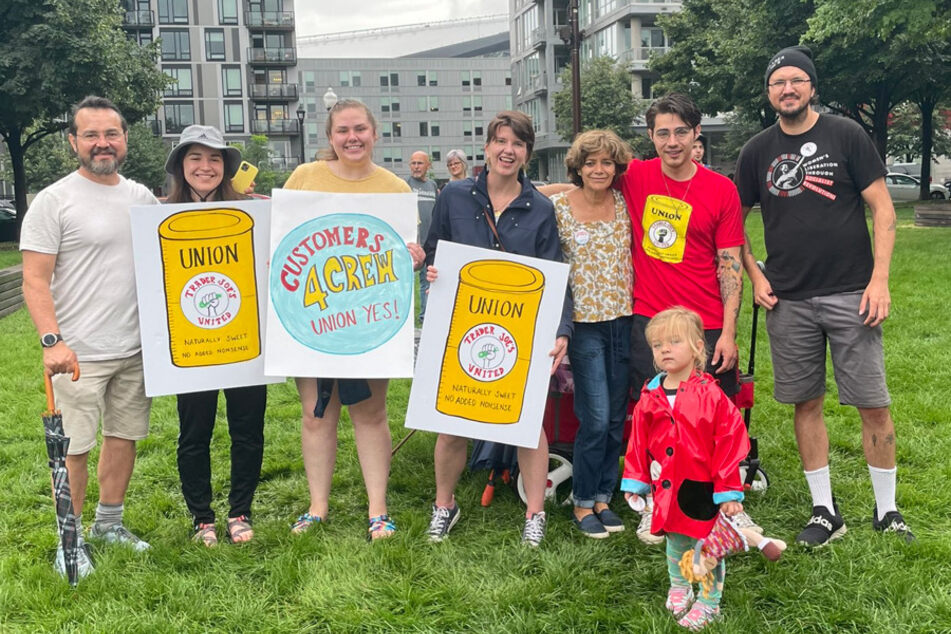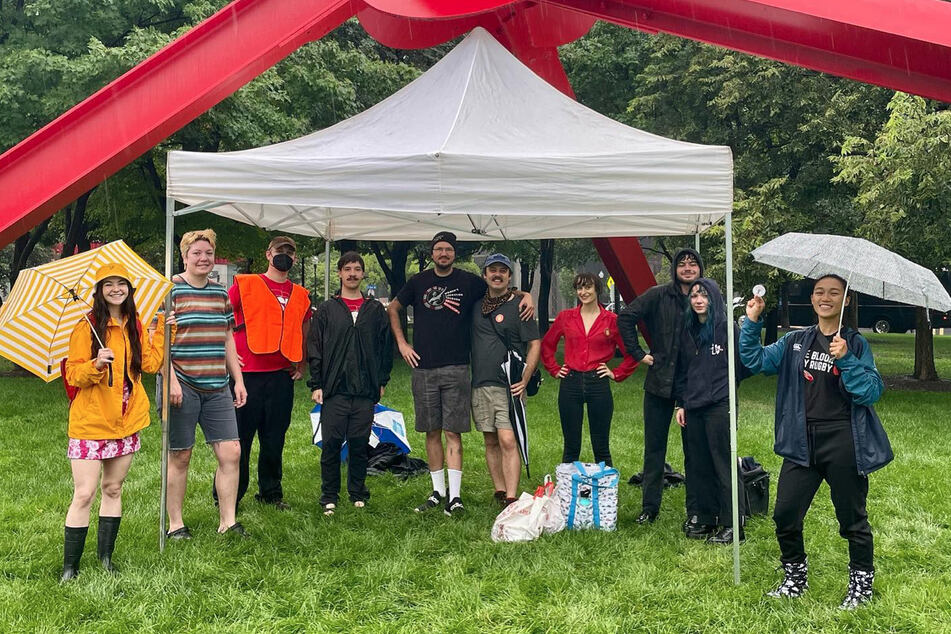Trader Joe's United organizer dishes on upcoming bargaining sessions
Minneapolis, Minnesota - Workers at the US' first two unionized Trader Joe's stores are scheduled to begin collective bargaining this week. TAG24 NEWS spoke with a Minneapolis-based organizer to hear what workers are expecting as they head into the highly anticipated negotiations.

After their successful union votes this summer, workers at Trader Joe's stores in Hadley, Massachusetts, and Minneapolis, Minnesota, announced this week that they had received bargaining dates for November 3-4.
Leaders at both locations have been preparing for months to fight for a better contract, said Sarah Beth Ryther, a 32-year-old organizer who has been with Trader Joe's for over a year.
"From the beginning of this process, we've been taking really detailed notes and sharing stories with each other that we can turn into demands and just being really thoughtful about how we view our workplace and the areas we think we could improve through a contract," Sarah Beth explained, noting that workers would approach the sessions with three main focus areas: wages, benefits, and safety and security.
As things stand, Trader Joe's workers at the Hadley and Minneapolis stores don't make enough to keep up with rising costs of living in their cities. Many are also experiencing food insecurity, despite working at a grocery store, Sarah Beth said. These are all issues workers are seeking to find solutions for through collective bargaining.
"It's a very difficult balance because most of us really appreciate a lot of aspects of working at Trader Joe's. We just know and understand that our workplace should be better," she insisted. "It's a dance between wanting to hold Trader Joe's to its ideals but also needing to point out when those ideals aren't met."
Minneapolis workers must pay out of pocket to attend bargaining sessions

While workers are approaching the upcoming bargaining process with a positive outlook, it hasn't come without a personal cost.
The sessions are being held at Smith College in Massachusetts. Because Trader Joe's has refused to negotiate in a hybrid format, workers from Minneapolis are forced to pay their own way if they want to attend.
"Given the wages most of us make, it's just not sustainable," Sarah Beth said. "It's a choice between making your rent or people saying, 'I can't take one more day off because I'm not going to be able to feed myself.'"
Sarah Beth is lucky: she happened to request the week off months ago before she knew about the bargaining dates, but she still had to pay for her trip out of pocket.
"I'm flying out to Hadley and a co-worker of mine is flying out to Hadley because we feel like it is of the utmost importance that we bargain collectively," she said. "We're a team. We want stores who join us in the future to be part of that team, and we feel really strongly that we work better together as a unit."
"I always want to enter into any negotiation with optimism that Trader Joe's will bargain in good faith. So far, it hasn't felt like that, but I would certainly love to see that in the future," she continued, adding that introducing hybrid bargaining would be a great way for the company to show that commitment.
In the meantime, Trader Joe's workers are remaining focused on fighting for one another so everyone can enjoy a safe and equitable work environment. "This is a larger time in history when folks are standing up and really speaking to the inequality that's been wildly obvious throughout the pandemic and has just been getting worse," Sarah Beth said. "I think we are really proud to be part of that, but I also think that when we look at our contribution, we are thinking about our co-workers."
"I'm thinking about the people I care about who are struggling. That feels essential for anything that we bring to the table."
Cover photo: Screenshot/Twitter/TraderJoesUnite

